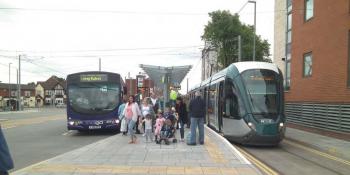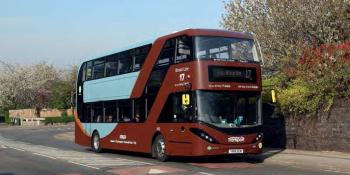Outside the cities, there are major differences in local authorities’ support for what should be lifeline connections — with demand responsive services introduced in several areas
There is little money to be made in rural bus services. Nothing new there. Even by 1962, the trade magazine Passenger Transport — merged with Buses Illustrated six years later to become today’s Buses — recorded that Lincolnshire Road Car Company reckoned more than 50% of its network was loss-making.
Inevitably it is the councils that fund deeply rural services, a difficult task for some as budgets are cut and cut. Yet there are sharp contrasts across the East Midlands, with each council following different policies with starkly different outcomes, as the Department for Transport figures for bus use in each authority show.
At the extreme south of the region identified by the government as part of the East Midlands is Northamptonshire. Its county council effectively ran out of cash, and almost all bus subsidies have been withdrawn. However, some routes continue to run, often where a developer has provided funding as part of a Section 106 payment under planning legislation.
East Midlands bus use - passenger journeys per head of population




